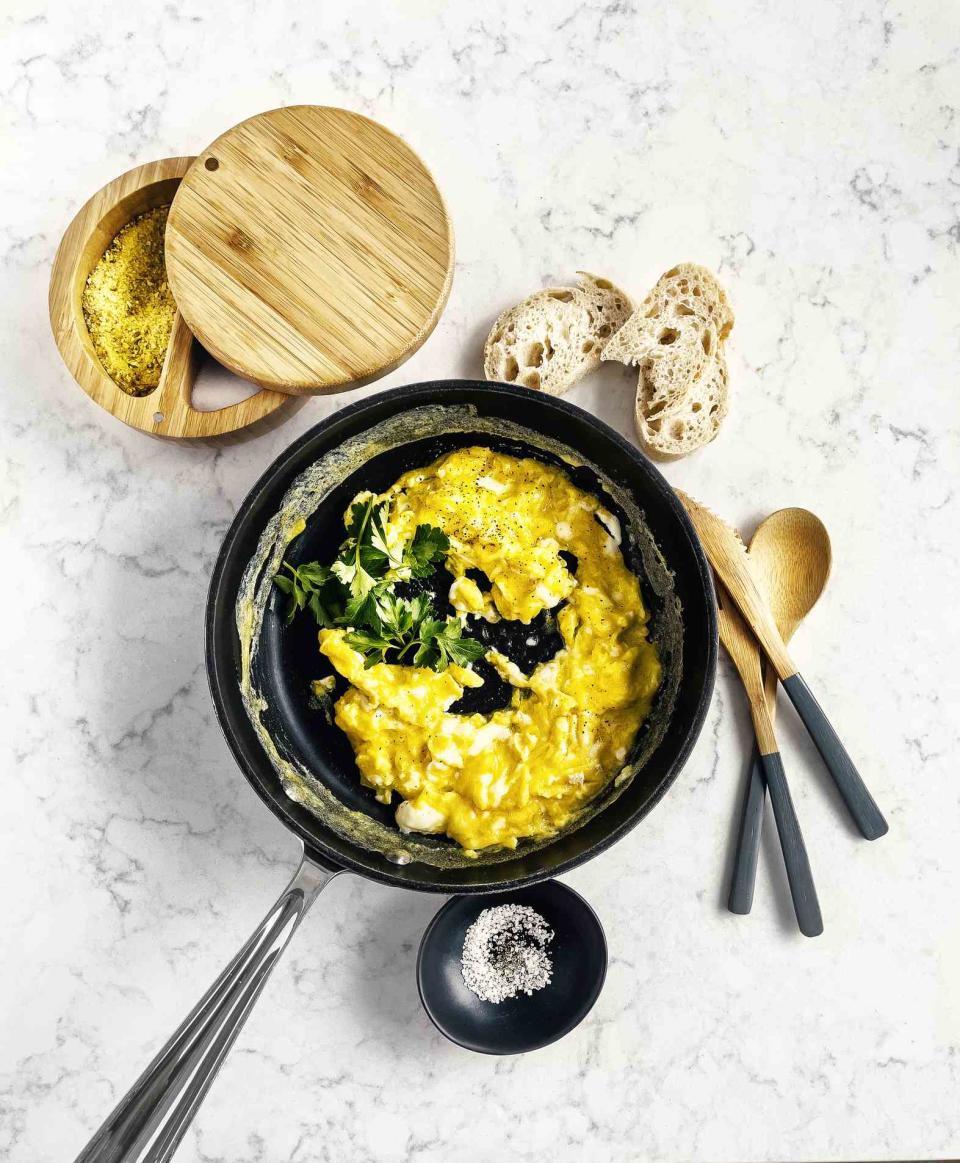Water Vs. Milk—Which Makes The Better Scrambled Eggs?
For fluffier eggs, only one will do.

Getty Images/Claudia Totir
Scrambled eggs are highly personal. Some like their eggs cooked low and slow, with tiny curds, and a creamy consistency. Others like their eggs cooked fast and hot, with larger, more defined curds, and a fluffier texture. And in between those two preferences are a spectrum of preferred scrambled egg consistencies.
For as many ways as people enjoy their scrambled eggs, there are an equal number of techniques that chefs tout as the best way to achieve that ideal plate of scrambled eggs, from finishing the eggs with crème fra?che to cooking them with ungodly amounts of butter. Two of the most popular add-ins for improving scrambled eggs are either water or milk, so we decided to compare them head to head.
How We Tested
We beat two eggs, ? teaspoon kosher salt, 2 tablespoons (one per egg) either water or whole milk together. Both the batch with water and the one with milk were cooked in nonstick pans with 1 tablespoon of unsalted butter until set, about 2 minutes. They were also both cooked over medium heat and were stirred frequently during the cooking process. All this is to say, we kept everything the same except for the milk and water.
Results: Scrambled Eggs Made With Water
These eggs turned out vibrantly yellow and had a more pronounced egg taste, which was slightly surprising as we typically assume water will dilute flavor. With a ratio of one tablespoon water to one egg that wasn't the case at all. In terms of texture, the eggs made with water yielded super tender medium-sized curds that were very light and fluffy.
Results: Scrambled Eggs Made With Milk
These eggs were slightly paler in color, which is to be expected with milk. More surprising, however, was that the eggs also tasted less eggy. The best way to describe the flavor was muted. It certainly still tasted like scrambled eggs, but the egg flavor was dialed down in comparison to those made with water.
They did, however, taste slightly richer and creamier. We used whole milk, so much of that richness came from the fat content of the milk, which you wouldn't get with low-fat milk. The curds were both smaller and a little softer than the ones made with water, but were less fluffy too.
So, Which Is Better?
For us, it was the eggs made with water. You would think that adding milk would be the better choice, since milk contains water plus added dairy flavor, but it only muted the egg flavor and yielded a scramble that wasn't as fluffy. Of course if you prefer creamier scrambled eggs, then milk might be the better choice for you.
Preferring water over milk isn't just our opinion—science also supports using water over milk (if you want fluffy eggs). Adding water to eggs essentially streams them, as the water evaporates during cooking, and this yields a fluffier scramble. If you add too much water you can dilute the eggs, and that will result in a bland mess, so stick to a tablespoon per egg and no more.
It's worth noting that Dolly Parton swears by adding water to your scrambled eggs too, but she insists that it should be ice-cold.
In the end, which is better highly depends on what kind of scramble you enjoy best. If like us, you weren't sure which you would prefer, try them side by side. You'll definitely be able to tell the difference.
Related:The 10 Best Things To Add To Scrambled Eggs
For more Southern Living news, make sure to sign up for our newsletter!
Read the original article on Southern Living.